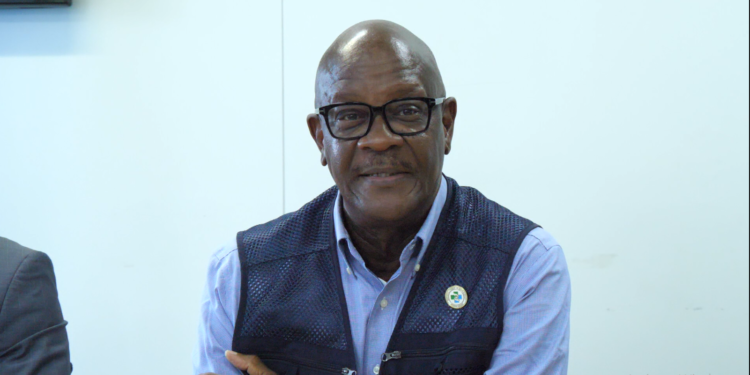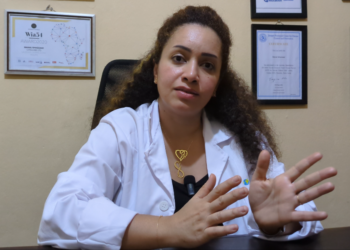By Kemo Cham
Sierra Leone has declared a Public Health Emergency in response to an outbreak of Mpox in the country.
Minister of Health, Dr Austin Dembi made the announcement on Monday, January 13th, when the National Public Health Agency (NPHA) announced a new case of the viral disease, bringing to the total to two since the outbreak was declared on Friday, 10th January.
The victims were identified as a 27-year old male from Hamilton Village in the Western Area Rural, who was the first case, and a 21-year old male who resides at Sheriff Drive in Lumley, west end of Freetown.
The men were said to be receiving treatment at the Infectious Diseases Ward at the country’s main referral hospital – Connaught in Freetown.
The NPHA says it has deployed a team of health workers as part of heightened surveillance measures, and that efforts were underway to identify and trace all contacts of the victims.
As of Monday January 13th, 25 contacts have been traced, revealed Prof. Foday Sahr, Executive Director of the NPHA.
The outbreak in Sierra Leone comes five months after the Africa Centers for Diseases Control and Prevention (Africa CDC) declared Mpox as Public Health Emergency of Continental Security. It followed escalating cases of the virus in many African countries, especially in the Democratic Republic of Congo, which remains the epicenter of the epidemic which began in 2022 before subsiding and resurfacing in 2023.
The World Health Organization (WHO) has also declared the disease a Public Health Emergency of International Concern.
According to the latest Africa CDC Joint Continental Situation Report on the Mpox Epidemic (23 September- 03 November 2024), 19 countries were recording cases, with a total of 49, 933 suspected cases. Out of these there were 11, 873 laboratory confirmed cases.
Over 70 percent of the cases were occurring in the DRC alone, with Burundi and Uganda also recorded high number of cases, according to the Africa CDC data, which also show that over 1000 Mpox related deaths have been recorded.
Sierra Leone becomes the last country in the Mano River region to declare outbreak of the Mpox virus, after Liberia, Cote d’Ivoire and Guinea. Among them, Liberia has recorded the highest number of cases – 19 laboratory confirmed cases, as of December 8, according to data from the National Public Health Institute of Liberia. It recorded over 200 suspected cases.
Health authorities in Sierra Leone say despite the concern occasioned by this development, the country’s experience dealing with previous health emergences, notably Ebola and Covid-19, positions it well to deal with the current emergency.
“Drawing from our experience…we are confident in our ability to contain this outbreak,” said Prof. Sahr.
But Health Minister Dr Dembi warned that there can be no room for complacence, hence the need for vigilance and proactive response.
He noted that given the fact that two cases have been recorded in the country indicated that something was happening in the communities that requires explanation.
According to the health authorities, none of the victims have had any known recent contact with animals or symptomatic individuals. And between the two, only one had traveled recently – the first case, who visited the airport town of Lungi in the northern Port Loko District.
Dr Dembi warned that the cases are likely to increase.
“But it doesn’t mean transmission will get out of hand,” he assured, urging citizens to remain calm, stay informed and report all suspected cases to health authorities.
“The declaration demonstrates government’s commitment to deal with the situation by mobilizing resources and prevent further spread,” he stressed.
The Health Ministry and the NPHA have announced some measures in response to the situation, including the launch of a nationwide public awareness campaign, ensuring an enhanced border surveillance to monitor and prevent inflow of new cases from enighbouring countries, and to expand testing capabilities. The authorities will also strengthen Infection Prevention Control protocols across all healthcare facilities, said Dr Dembi.






















